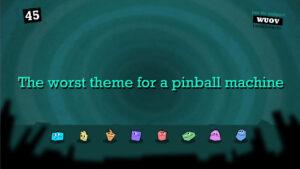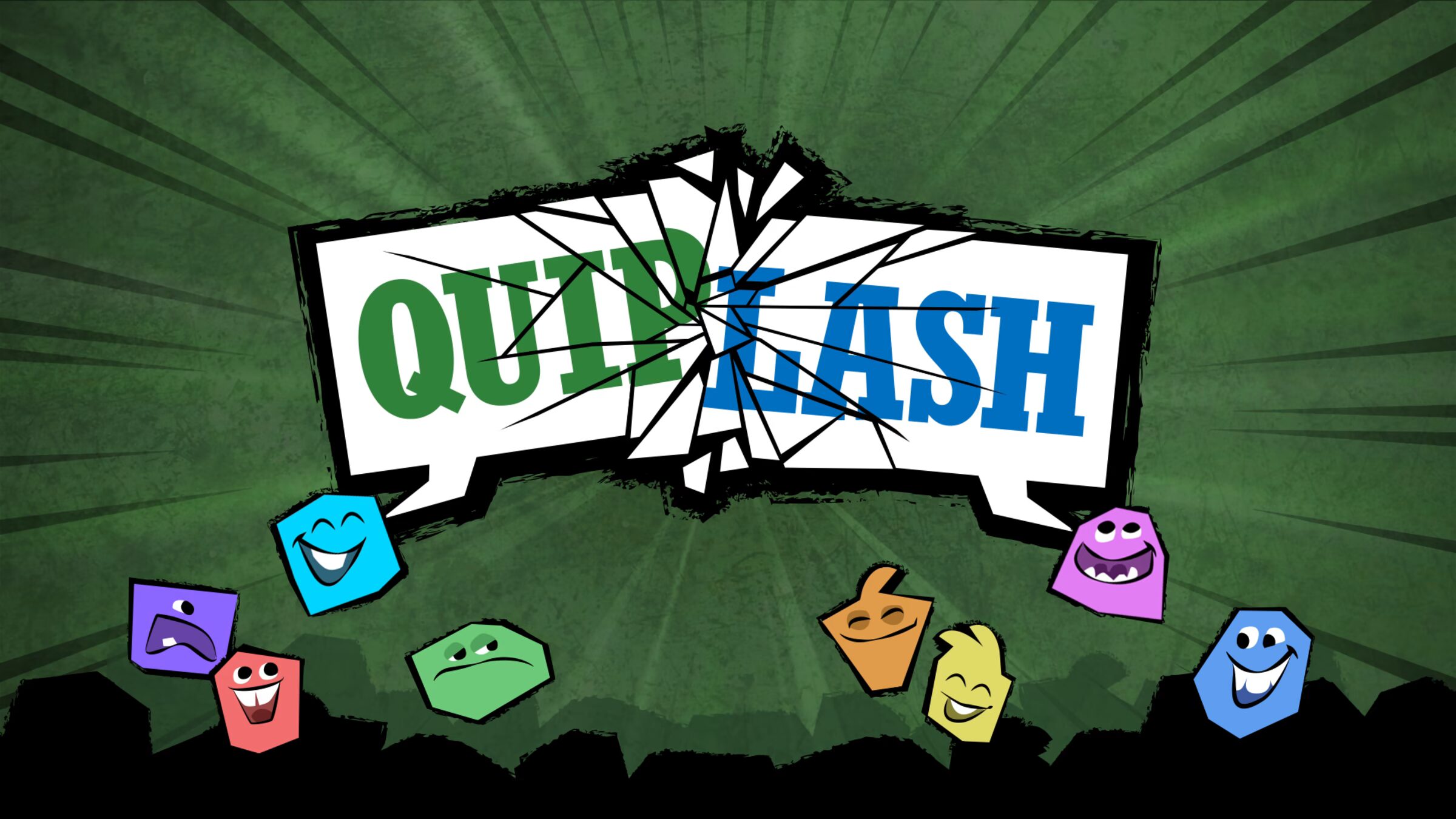For this week’s critical play, I played one of my favorites that I used to play all the time with my high school friends: Quiplash. Quiplash, made by Jackbox Games, has an extremely wide audience. It can be played by kids, teens, adults and the elderly, as long as players are willing to be creative with their answers. Quiplash is a party/judging game meant for groups (the bigger the better), where players are given different prompts/questions and must formulate the most crowd-appealing response. All players that didn’t get that specific prompt vote on which submission is best. This happens for a total of 12-15 prompts, points are aggregated, and a winner is declared. The interesting thing about Quiplash, and the reason its audience range varies so widely, is that different groups play for different reasons. A teenage group might decide to vote for the most heinous/outrageous responses, whereas an adult/elderly group might favor the most accurate and appropriate responses. The game is meant to adapt to its audience and as a result its rules are super fluid. Its mechanics are super similar to Cards Against Humanity, except it relies on a group (simple majority) vote instead of just one person voting. This increases the engagement, making it more fun for all the players involved.
Quiplash can be played with a max of 8 players, but there does exist a “spectator” role. If there are over 8 players (which happened in my critical play this week), the extra people can sign in as spectators and can cast an “audience vote”, which will break a tie if one takes place. This mechanic is super interesting and even though a max of eight people can submit responses, the “actual” player count is, in theory, infinite. This was a really novel mechanic for me to witness and actually helped me think about how I can use a mechanic like this in my P1 game, since we have a problem with eliminated players having nothing to do when they are out. Now, after seeing how this “infinite player” Quiplash mechanic made the game fun for everyone and made sure everyone had something to do, my P1 game now has increased roles for eliminated players (such as participating in the main task to fight for a spot back in the game).
For this critical play, my group leaned towards the more outrageous submissions, so responses that were the funniest (but still in general good taste) got the most votes. Something I thought was fascinating and changed the dynamics of the game was how my group’s inside jokes crept into the game. For one of the prompts (“I didn’t mean to kill him! I just ____”), a player submitted an inside joke that we had been laughing at for years. All the sudden, that joke caught on, and every submission or two, someone would rephrase that inside joke and sweep the round. Even if it wasn’t the most relevant to the prompt, it got the most laughs and would clean up on votes.

Quiplash is designed to maximize laughs, so at the end of the day it doesn’t really matter who wins or loses, it’s only fun if everyone laughed and had a good time. However, the “maximize laughs” dynamic ended up having an interesting effect on the outcome of the game. When player responses show up on screen, they are anonymous. So, some players found a way to make their answer seem funnier than it may be, thus increasing its vote count. For example, we had several situations where a player would see their response on screen, laugh hysterically at their own response because they thought it was funny, and everyone would find that funny and vote for it too. If that one guy hadn’t laughed at his own prompt, it would not have gotten as many votes. The anonymity mechanic creates a dynamic where players are incentivized to laugh and hype up their own submissions to get more votes, potentially swaying votes in their favor.
But, of course, these games are played to laugh, so at the end of the day it’s not too big of a deal who wins or loses. This game rocks in groups, especially tightly knit ones. I always love playing it when I’m home with my hometown friends. Ah… such good memories :). Overall I’m a huge Quiplash fan and had a great time critically analyzing it this week.




